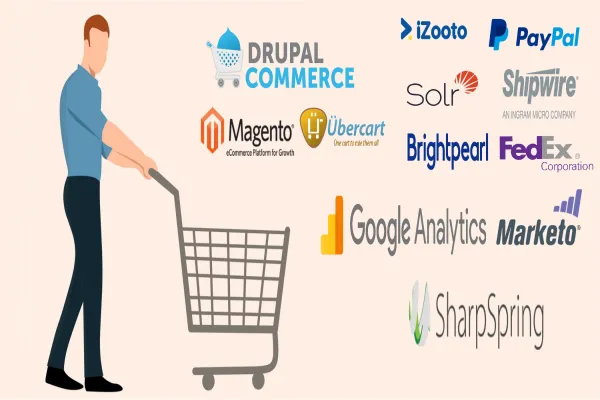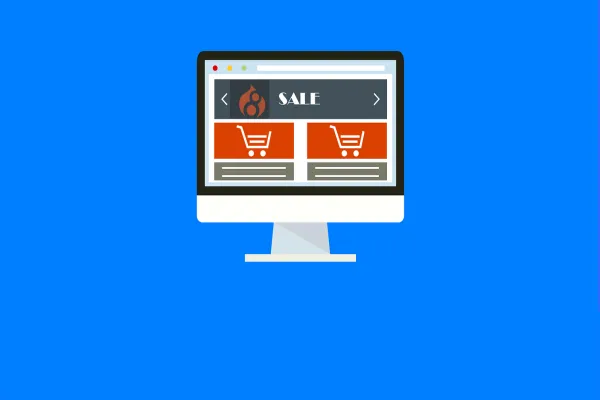The advances in technology has brought in an unprecedented growth in E-Commerce industry, which has become a major target for cyber crimes. It becomes necessary to address the security measures for websites as any data breach leads to the loss of sensitive information along with monetary losses. This not only threatens reputation of the organization but also leads to mistrust among customers. When compared to leading organizations, smaller firms are affected more as they have to suffer substantial losses.
Full security over the web can’t be attained as the hackers are devising new plans everyday to access consumer data. But, threats can be minimised by following certain security measures.
Based on our experience of working on several E-Commerce websites built using Drupal framework, in this article, we will talk about various safety parameters and how these risks can be addressed.
Sensitive Data Exposure
The PCI DSS recommends that an E-Commerce application shouldn’t store unnecessary consumer information as it may be prone to cyber attacks. Such information should be stored in a confidential manner, using strong encryptions.
In Drupal, the stored account passwords are protected and hashed based on Portable PHP Password Hashing Framework. The Drupal community-contributed codes offer solutions to encrypt sensitive data, whether stationary or in circulation.
XSS (Cross-site Scripting)
The XSS attacks are a type of injection, where infected scripts are injected into trusted websites. When these scripts are received by browsers, it leads to data breach.
By default, any untrusted user's content is filtered to remove dangerous elements in Drupal Core. In case any anonymous content is identified, the errors which can lead to XSS vulnerabilities can be mitigated by building safer defaults.
Weak Access Control
The end users can’t be given the kind of access that administrators have over their site. This is concealed using certain Java Scripts. If these Java Scripts become accessible to all, data can be easily breached. Additional security measures like two factor authentication through OTPs and e-mails should also be implemented to limit such kind of access.
Access controls in Drupal are protected by a powerful permission-based system which checks for proper authorization before any action is taken. With a number of modules, access checking can be tightly integrated into the entire menu-rendering and routing system. This enables the protection of visibility of navigation links and pages by the same system that handles incoming requests.
Security Misconfiguration
Although the contemporary E-Commerce applications come with an extra layer of security, but any loophole in the configuration can make them vulnerable.
Inefficiencies that lead to misconfiguration are corrected through usability testing and fixes that are recommended for inclusion to Drupal core. There are several contributed projects that conduct automated security review or implement further secure configurations.
Broken Authentication and Session Management
Almost every webpage users use, caches their data and links a unique session ID with them while displaying the result they seek. If they copy and share the URL of the website with another individual, they also accidentally end up giving their session ID. If it is replicated, hackers can easily get into users’ session and access their information.
User accounts and authentication are managed by Drupal core on the server to prevent a user from escalating authorisation. The passwords are hashed using PHP framework and existing sessions are destroyed upon login and logout.
Unvalidated Redirects and Forwards
It is advisable for users to go for only authenticated redirects and certified links present in the comments section of a web page. This is because unauthenticated redirects and links can lead you to a malicious page, created by an attacker to get the access to important administrative functions of the webpage.
Internal page redirects cannot be used to circumvent Drupal's integrated menu and access control system. Drupal protects a site against automatic redirection via anonymous links to off-site URLs which could be used in a phishing attack.
Security is an essential part of E-Commerce development and should be one of the fundamental objectives that needs to be kept in mind. It should be a part of development practice from project planning stage itself. If you are using Drupal to build your E-Commerce platform, it is as secured as any other pure E-Commerce enterprise framework available in market. And in new age of commerce where content and community are part of your marketing effort, Drupal scores over most of different options available. Just to substantiate, one of the leading enterprise commerce framework, Magento Commerce site itself runs on Drupal.
If you are building an E-Commerce site using Drupal and need assistance, please do contact us.





